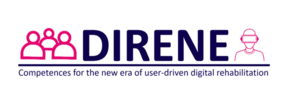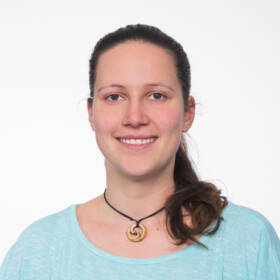Addresses the need for furthering digital rehabilitation and the competences it requires
Background
The growing number of elderly people and people suffering from chronic diseases places a burden on health-care systems worldwide. The WHO (2020) estimates that by 2050 over 2 billion people will have to use one or even more assistive devices at some point of their lives. To alleviate the rising pressure on the health care systems, the ways in which medical treatment, therapy and rehabilitation are performed need to be reconsidered. For instance, the digital transformation offers many opportunities experimenting with new methods, yet many rehabilitation service providers and healthcare professionals lack the necessary skills to make the most of modern technology. This became especially apparent after the outbreak of the Covid-19 pandemic, because it accelerated the demand for people being able to apply new technologies to improve and streamline processes in rehabilitation.
Project content
Digital technologies open up new avenues to cope with the challenges the rehabilitation sector faces. For this reason health care professionals should add competences in these new technologies to their skill set. However, this requires access to reliable sources of information and evidence-based knowledge as well as guidance on how to incorporate digital technologies into the services offered by rehabilitation institutions. More precisely, competences in designing user cases for existing digital solutions and for other emerging technologies need to be strengthened. To facilitate knowledge transfer and make different approaches in digital rehabilitations as widely available as possible, transnational collaboration in higher education is indispensable.
Goals
The overall aim of the project is to make the health care sector more resilient by furthering digital rehabilitation competences of teachers, students and those working with patients. More specifically, the project partners intend to
- collect information on modern, digital technologies and map out their suitability for the rehabilitation sector. This also includes answering questions on how important concepts in rehabilitation such as client-centred care can be achieved with digital technologies.
- spread and make knowledge on digital rehabilitation widely available (i.e., theoretical concepts and evidence-based practice) and provide guidance on how to put digital competences into practise.
- develop sources of information (e.g., handbook, papers etc.) giving insight into how digital technologies can be used in rehabilitation.
- develop and implement a mobile learning study module directed at a broad audience in the health care sector (e.g., health care students, rehabilitation professionals).
Method
The whole project is divided into several steps. In step one data and material is gathered to explore the applicability of new technologies in rehabilitation (e.g., food recording apps, wearable physical activity trackers, videos etc.) in the context of important concepts such as empowerment and client-centred care. In a second step a framework is developed, which gives an outline of common knowledge gaps, possible barriers, and to what extent continuous learning is needed when applying digital technologies in rehabilitation.
The outcomes of these two steps are distilled into a pedagogical handbook (on Mobile Education & Training of Digital Rehabilitation Competencies) as well as into a study module with freely available learning materials for target groups. The project partners from different countries attach great emphasis to active collaboration, networking, transnational collaboration (within Europe and outside Europe as well) and the co-creation method, which encourages input from all partners during all stages of the project. In addition, different stakeholders are invited to contribute and share their expertise.
Results are widely disseminated through websites, social media, multiplier events and open learning opportunities. Around 300 experts in rehabilitation are directly involved in the project but through the high number of outreach and networking activities it is expected to receive contributions of more than thousand people.
Results
Digital technologies can help to sustain high quality in health care and rehabilitation. However, teachers, students and health care professionals often lack the competences to take full advantage of the possibilities such technologies offer. To provide support in acquiring the necessary knowledge, the partners in this project review different digital technologies for their potential in rehabilitation and health-care. These analyses form the backbone for a handbook and a mobile learning study module providing knowledge on how didactical concepts and concepts in rehabilitation can be implemented with digital technologies. Overall, building up competences in new technologies on a broad range can help to cope with the challenges the health care systems face.
You want to know more? Feel free to ask!
Senior Researcher Institute of Health Sciences
Department of Health Sciences
Department of Media and Digital Technologies
Christian Grüneberg
Evanthia Sakellari
Inma Riquelme
- FH-Prof. Jakob Doppler MSc
- Mag. Dr. Christian F. Freisleben-Teutscher
- FH-Prof. Dipl.-Sporting. Dr. Mario Heller
- FH-Prof. Mag. Dr. Elisabeth Höld
- FH-Prof. Priv.-Doz. Dr. Brian Horsak
- FH-Prof. Andreas Jakl MSc
- Patricia Renner BA MA
- FH-Prof. Manuel Schwanda BSc MScN
- Mariella Seel BA MSc
- FH-Prof. Alexandra Kolm MSc
Nathalie Gaiswinkler
- JAMK University of Applied Sciences (Lead)
- hsg Bochum,Hochschule für Gesundheit, University of Applied Sciences
- University of West Attica
- University of the Balearic Islands




